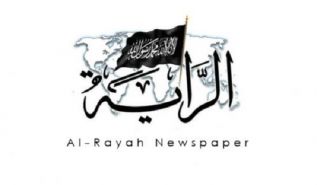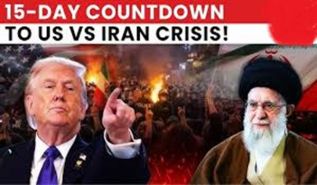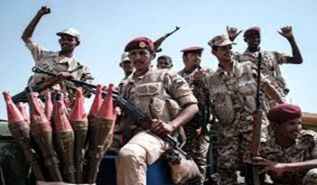بسم الله الرحمن الرحيم
The Ummah Between Mere Existence and Actual Function, Absence or Disappearance? Causes and Mechanisms of Activation
By: Dr. Ashraf Youssef Abu Ataya
(Translated)
Al-Rayah Newspaper - Issue 570 - 22/10/2025
There is a questioning posed by the events that the Ummah experiences from time to time. The questioning is increasing at this time, in what amounts to an accusation and condemnation of the Ummah, given the siege and genocide Gaza is suffering, at the hands of the criminal Jews.
Disciplined awareness can only be built on a foundation of clear perceptions and specific, disciplined concepts, since judging something stems from its perception. If shared perceptions are absent, understanding is fragmented and communication becomes difficult, which impacts the ability to diagnose reality and take practical stances regarding objects, events, and people. Hence, liberating and regulating concepts represents the foundational step for any awareness or revival project.
It is essential to distinguish between the original existence of a matter and the description of its state. For example, the physical existence of a car is constant, but its breakdown or stoppage describes its state. Similarly, the existence of the Islamic Ummah is objective and firmly established, possessing its essential components: a unifying Aqeedah (doctrine) and the systems of life emanating from that aqeedah. Allah (swt) says,
[إِنَّ هَذِهِ أُمَّتُكُمْ أُمَّةً وَاحِدَةً وَأَنَا۠ رَبُّكُمْ فَاعْبُدُونِ]
“Indeed, this, your Ummah, is one Ummah, and I am your Lord, so worship Me.” [TMQ Surah Al-Anbiyya: 92].
Describing the Ummah as weak, fragmented, absent, or sick is a description of an emergency situation that does not negate its existence. This distinction is essential because it moves us from the notion that the Ummah has lost its foundations to the realization that it exists but is ineffective.
From this perspective, it can be said that the Islamic Ummah today exists but suffers from a functional paralysis. The majority is in a state of intellectual and political coma, while individual movements and scattered reactions emerge. The Ummah has suffered from intellectual weakness as a result of the diminished understanding of Islam as a driver of awareness, leaving it prey to imported concepts, and intellectual and political deceptions. This impotence and surrender have resulted in the absence of effective intellectual and political drivers.
For the most part, groups and factions are either absent or integrated into the existing reality. This explains the lack of a collective response from the Ummah to major events, such as the genocide and displacement in Gaza, where the gap between the Ummah as an objective entity and its political awareness and effectiveness appears vast.
The nature of the Ummah’s crisis lies not in its existence, but in its lack of effectiveness. The core of the problem lies in three major absences:
- The absence of motivating concepts: The Islamic Aqeedah (doctrine) is no longer the foundation of thought and behavior.
- The absence of driving forces: Influential parties and intellectual and cultural collectives are either absent or restricted.
- The absence of ideological political leadership, one that unifies the Ummah and directs its energies.
This is what is indicated by the saying of the Prophet (saw) who said, «إِذَا تَبَايَعْتُمْ بِالْعِينَةِ وَأَخَذْتُمْ أَذْنَابَ الْبَقَرِ وَرَضِيتُمْ بِالزَّرْعِ وَتَرَكْتُمْ الْجِهَادَ سَلَّطَ اللَّهُ عَلَيْكُمْ ذُلًّا لَا يَنْزِعُهُ حَتَّى تَرْجِعُوا إِلَى دِينِكُمْ»“If you engage in ‘inah transactions, take hold of the tails of cows, accept agriculture, and abandon jihad, Allah will impose humiliation upon you that He will not remove until you return to your Deen.”
The humiliation is not the absence of existence. Instead it is the cessation of a functional role and effectiveness, due to abandoning the Islamic methodology.
The path to healing begins first with reviving authentic Islamic concepts in the Ummah’s awareness, through intellectual advocacy work that restores ‘aqeedah to its role as a primary driver. Allah (swt) says,
[قَدْ جَاءكُم مِّنَ اللّهِ نُورٌ وَكِتَابٌ مُّبِينٌ * يَهْدِي بِهِ اللّهُ مَنِ اتَّبَعَ رِضْوَانَهُ سُبُلَ السَّلاَمِ]
“There has certainly come to you from Allah ﷻ a guidance and a clear Book. By it, Allah ﷻ guides those who pursue His pleasure to the ways of peace.” [TMQ Surah Al-Maida:15]. This work then continues in the form of ideological political engagement within the Ummah to generate a disciplined general awareness of Islam, transforming popular sentiment into a political and intellectual public opinion, capable of pressuring and directing events.
We must also address the media and political deception that reproduces false awareness, and expose the mechanisms of exclusion that keep the Ummah oblivious to its role. Here, the Shariah obligation of those who carry out the Dawah to Islam is highlighted. It is perseverance, not tiring or growing weary, and the continuity of the Dawah process, in accordance with the command of Allah (swt) Who said,
[وَاصْبِرْ وَمَا صَبْرُكَ إِلَّا بِاللَّهِ]
“And be patient, and your patience is not but through Allah.” [TMQ Surah An-Nahl:127].
Mobilizing military forces remains the decisive element in restoring the Ummah to its effectiveness, role, and leadership. Their Shariah function is not to protect existing regimes, but instead to protect the Ummah and its comprehensive political project, the Khilafah (Caliphate). The Prophet (saw) said, «إِنَّمَا الْإِمَامُ جُنَّةٌ يُقَاتَلُ مِنْ وَرَائِهِ وَيُتَّقَى بِهِ»“The imam is a shield behind whom one fights and by whom one seeks protection.”
In the Islamic view, the army is part of the Ummah, and its mission is to support its political project, represented by the Khilafah (Caliphate), which unifies the Ummah and restores its empowerment and effectiveness.
The Islamic Ummah, then, is neither nonexistent nor finished. Instead, it is an entity that exists with its own foundations, but suffers from a functional paralysis. This paralysis stems from the absence of concepts, driving forces, and ideological leadership.
By intensifying the efforts of the Dawah campaign to revive Islamic concepts, linking awareness to revelation, building public opinion on a political thought disciplined by the aqeedah, and mobilizing the Ummah's latent energies, especially the armies, the Ummah can thus regain its vitality and historical role, resume its Islamic life, remake history, and return to the way Allah (swt) intended it,
[وَكَذَلِكَ جَعَلْنَاكُمْ أُمَّةً وَسَطًا لِّتَكُونُواْ شُهَدَاء عَلَى النَّاسِ وَيَكُونَ الرَّسُولُ عَلَيْكُمْ شَهِيدًا]
“And thus We have made you a just community that you will be witnesses over the people and the Messenger will be a witness over you.” [TMQ Surah Al-Baqarah:143].




